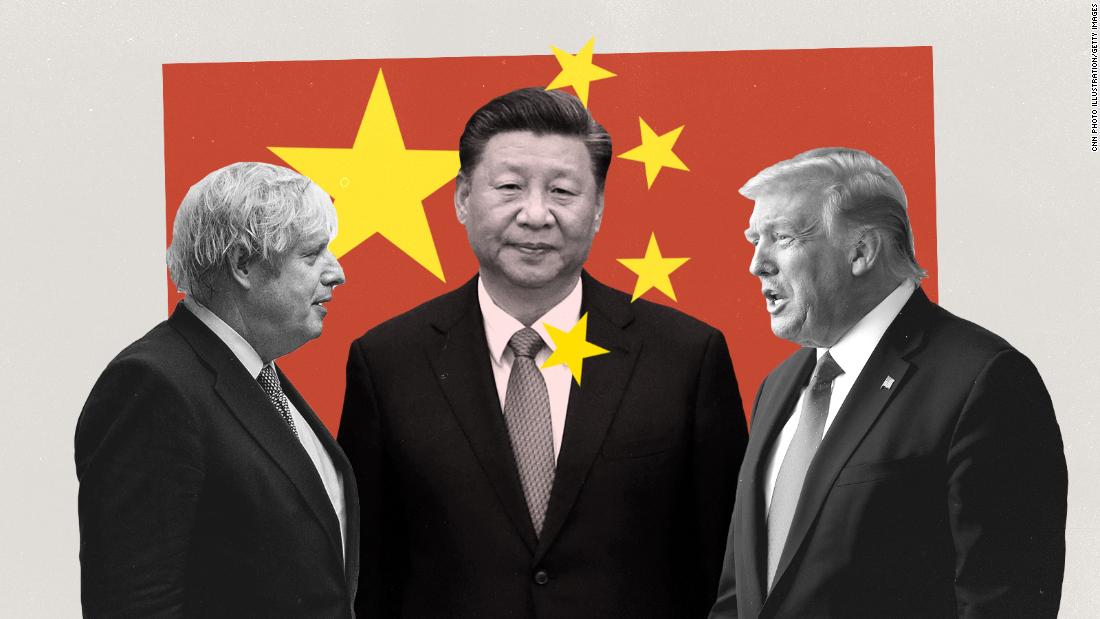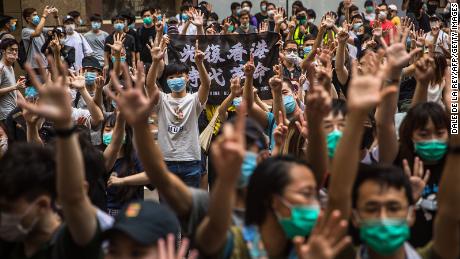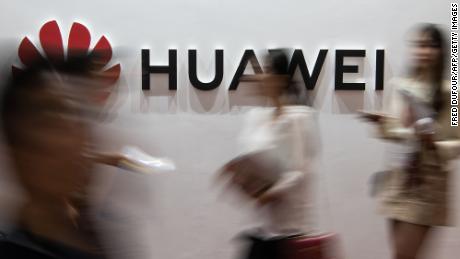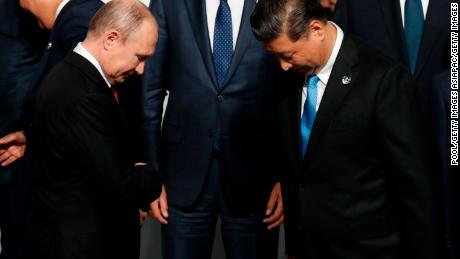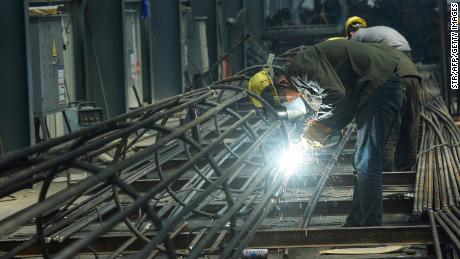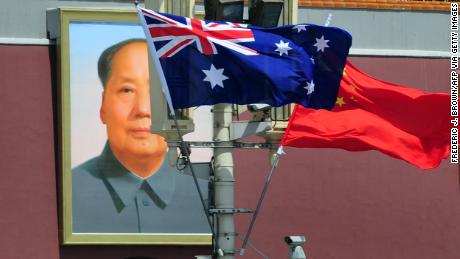Today, the warmth in the room at Davos has all but gone.
Beijing is used to such diplomatic skirmishes, but something has shifted: Countries that once condemned China softly have become louder and their actions bolder. They are clearly coordinating their China responses, looking for strength in numbers.
The language used and actions taken by Western powers to condemn this law has, in many cases, been the same.
Take the Five Eyes, an intelligence-based partnership between the United States, UK, Australia, Canada and New Zealand. Four of its members issued a swift joint statement condemning China for passing the law, and defending Hong Kong as a “bastion of freedom,” in a rare open show of unity. Only New Zealand opted out of the statement.
And the European Union’s top diplomat Josep Borrell also warned Monday the bloc was coordinating its response, though he said nothing concrete had been decided yet.
The safe havens and extradition suspensions have irked officials in Beijing, who have promised to hit back with countermeasures. Already they’ve warned Chinese students not to travel to Australia because of discriminatory attacks against Asian people, while Chinese Foreign Ministry spokesman Zhao Lijian told the UK “to step back from the brink” and “recognize the reality that Hong Kong has returned to China.”
Of course, allied countries have most likely been discussing their China strategies for years, but such concerted action is rarely so blatant.
One of its current campaigns urges member countries to drop extradition treaties with Hong Kong to shield people from Chinese authorities. Another urges member nations to offer Hong Kongers safe havens through visas.
“If you see that countries are going beyond the United Nations with parliamentarians now going beyond the borders to create a united front against China — I’ve never seen anything like that. That’s quite remarkable,” said Yuka Kobayashi, an assistant professor in China and international politics at SOAS, University of London, who advises governments and organizations on China.
“A lot of countries were previously accommodating to China but are not so accommodating anymore,” she said.
She pointed out to the way several countries have banned Chinese tech company Huawei from their high-speed internet infrastructure as another example of this international unity on China.
“If these are now coordinated, it is going to pose serious challenges to China.”
These decisions may not have been made together, necessarily, but these states are closely watching one another’s decisions and, in some cases, following suit.
Huawei has gone to great lengths to show it is not an arm of the Chinese government, claiming it would never hand over personal data to the Chinese authorities, but some experts say it could be legally obliged to in certain circumstances.
India also cited security concerns when it recently banned social media video platform TikTok and dozens of other Chinese-owned apps, even though the decision was broadly seen as an act of retaliation following deadly clashes between Indian and Chinese troops at a contested border last month. The US is mulling a TikTok ban for security reasons.
China and the world order
With China’s extraordinary rise has come a willingness from Beijing to take a leading role in some of the institutions at the foundations of the current world order. The country’s rapid economic expansion is inextricably linked to globalization, so gaining access to the World Trade Organization and taking part in the G20 are important platforms for Beijing. Signing the Paris accord on climate change has also furthered China’s global credentials, particularly as the US has pulled out.
But some of its key decisions this year show the limitations of China’s commitment to global norms. Beijing has taken its more assertive foreign policy to a new level in recent months, as the world remains focused on getting a grip on the pandemic.
Its recent clashes in the Himalayas killed more than 20 Indian soldiers, in the first deadly outbreak at the contested border in more than 40 years. India reported that dozens of Chinese soldiers were also killed, but officials in Beijing never confirmed a number.
Accusations of recent attacks on US pharmaceutical and research institutions making progress on the coronavirus was for some a textbook example of how difficult it can be to censure China.
China is so important to the global economy that whenever criticism is thrown at the country, it’s almost always coupled with a recognition of how important China ties are.
But in the same breath he made clear relations with China were incredibly important.
“Confronting this threat effectively does not mean we shouldn’t do business with the Chinese, does not mean we shouldn’t host Chinese visitors, it does not mean we shouldn’t welcome Chinese students or coexist with China on the world stage,” he said.
“It does mean that when China violates our criminal laws and international norms, we are not going to tolerate, much less enable.”
Zhao, the Chinese Foreign Ministry spokesman, told CNN that Wray’s remarks amounted to “political lies.”
“Wray’s remarks show a disregard for facts and is full of political rumors that expose his deep-rooted Cold War mentality and ideological bias,” Zhao said.
Australia shifts its China stance
It’s a balance the world is still struggling to work out. China is so integrated in the global economy, it has enviable leverage during disputes, whether it be over trade, contested territories, sovereignty or ideology.
The disruption has forced much of the world to consider diversifying its supply chains and export markets.
Australian Prime Minister Scott Morrison’s call for a coronavirus probe into the virus’ origins is a rare show of leadership on global affairs from his country. It’s also surprising, because Australia’s geographical proximity to China makes the threat of a military conflict very real.
Tellingly, Morrison recently announced a boost in defense spending.
Her quandary is understandable. Trade aside, there are other strong arguments against alienating China. The world needs China’s cooperation on the environment — it’s the world’s biggest carbon emitter, and has been willing to take part in a global effort to fight climate change. Only China can provide the answers to some questions on the coronavirus’ origins, answers that health experts say could help prevent another pandemic.
And if China does develop the first coronavirus vaccine, the rest of the world will undoubtedly want access to it.
Sidelining China simply isn’t a realistic option. But much of the world is showing it is determined to reshape relations with Beijing, by standing together.

